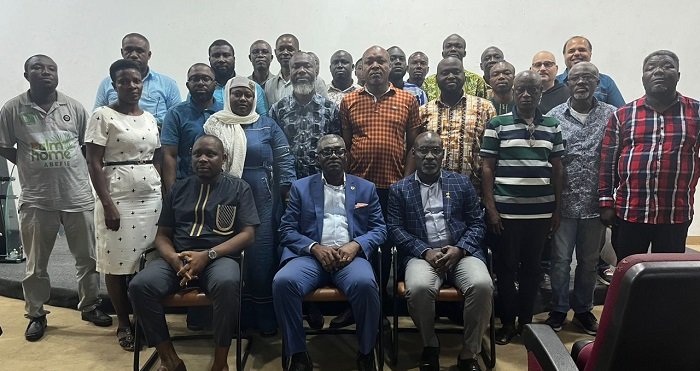TCDA moves to regulate oil palm sector …begins registration of actors
TO regulate and create a conducive environment for the growth and development of actors in the oil palm value chain, the Tree Crops Development Authority (TCDA) has begun the process of licensing and registering actors in the sector.
The actors include aggregators, millers, refiners, and crude or refined palm oil exporters and importers who play a vital role in the country’s economy, food security, and sustainable development.
Speaking at a dialogue organised by the TCDA in Accra on Tuesday, the Chief Executive Officer (CEO) of the Tree Crops Development Authority (TCDA), Mr William Agyapong Quaittoo, said licensing and registration of actors in the oil palm value chain would help boost local oil production in the country.
The dialogue was to discuss ways of ensuring improvement in local palm oil production and to promote best practices to guarantee a level playing field for stakeholders in the sector.
The event was attended by representatives from the Oil Palm Development
Mr Quaittoo said the inability of local producers to compete at the international level had led to their collapse, and stressed the need for the development of policies and programmes that supported local oil producing companies.
The CEO also urged the actors to register and obtain a licence from the TCDA before they could operate in order to ensure efficiency and proper sanity in the sector.
The registration, he said, could reduce the prevalence of illicit activities within the oil palm industry, emphasising the significant economic contribution of palm oil to the nation.
“Registering will also ensure traceability and accountability of oil palm and increased access to finance and improved sustainability and environmental practices,” he said.
Dr Paul Kwabena Amaning, the National Organiser for OPDAG, stressed the need for a stronger collaboration between the Minerals Commission and the TCDA to ensure the sustainability of the sector.
The partnership between the two institutions would enable the local oil palm sector to realise its full potential, thereby becoming a vital contributor to Ghana’s economy.
Dr Amaning further noted that without sufficient infrastructure, challenges such as elevated transportation costs, product spoilage, and restricted market access would persist.
BY AGNES OWUSU

